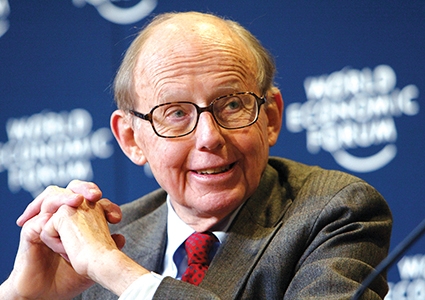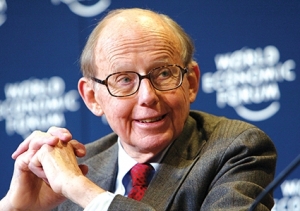Huntington’s Wisdom, Endless Conflict?
OPED
Are we really done with world wars? No, aren’t! No matter how civilized and sophisticated we become technically, we are still faced with the same old vicious, brutal and unforgiving world, one in which we have to defend ourselves from violence as we have always done, and we might continue to need to do now and in the future. One of the most expansive wars is presently being waged right in the middle of Europe, which is very expensive into the bargain. Explosions, plunder, mass rapes and attacks on civilians of various ages and status has become a routine part of day-to-day life. And the unusual manner of the current war is extremely bothersome, in that the confronting sides have found themselves a priori in an unequal position – one side is invisible and operates under camouflage as a rule, and the other side is always caught napping and on the defensive. Those on the offensive have been named as terrorists by the attacked, while the attackers try to prove to the rest of the world that they are pursuing a heroic mission of reinstating justice; and those who are on the defensive are sure that the offenders are unfairly and violently taking away their peace and good life. The situation has escalated so badly that some European countries – the attacked and self-defending ones – are closing their borders and declaring a state of emergency on their territory before it gets too late to secure their civilized way of life. The embittered offenders are swarming towards the border-lines of well-to-do European nations from those parts of the world where they can no longer survive due to hunger, homelessness and disparity left by on-going wars in their respective countries. The flow of migrants and refugees from those unfortunate places never ends, and Europe is getting terribly irritated by the influx of newcomers, although it wants to keep up the lofty idea of human rights which it has always championed historically. The problem is being compounded by the differences in cultural and behavioral patterns between the rooted Europeans and those who are trying to penetrate into a more civilized world than the one they came from, saying nothing about the breached habitual order of things on the old continent and financial bottlenecks that usually follow. How long will this last and how happy can the end be? My personal affordable answer is that the quagmire may last forever and the end is going to be clearly unfortunate if all remains unchanged. The prominent American political scientist Samuel P. Huntington quite a while ago predicted that people’s cultural and religious identities would be the primary source of conflict in the post-Cold War world, which seems to be inevitable, and the world would be wise to prepare for such a conflict. Civilizations do not mix well. They love their identity and want other civilizations to behave according to their cherished ideals and paradigms. It will not happen! The clash between them is clear and obvious, and the danger of the clash is ever-present. Why do people of various ethnic origins, races and civilizations not mix well and often experience confrontations on religious grounds? This question is not easy to answer. Volumes have been written to interpret the differences, and the dilemma has remained unsolved for millennia. Huntington is right, although controversial to a certain extent. His descriptions could be right but solutions might leave some unanswered questions. There should be no panacea around to rectify the situation, but one thing is doubtless – violence will beget violence, so the sides might want to stop it and make an attempt to work out a model of mutual behavior, basing it on the knowledge and experience accumulated so far. If we don’t do this, medieval darkness and violence might be looming around the corner for us to taste again.
Nugzar B. Ruhadze












